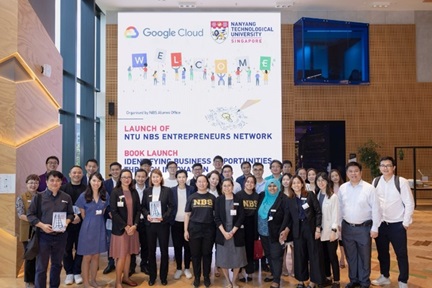Firms say staff should be able to use data; workers say they're not being trained
Only 28 per cent of companies in Singapore train all employees, other than those in data roles, to use data
Good use of data brings in more revenue for a business, and every employee should be able to read data, draw insights, communicate and take action with it, say companies.
Workers who understand data also make better decisions and are more likely to stay with their firms, say employees.
The only catch, they say, is that companies are not training them in the skills they need to do all of the above.
There is a discord between local managers and employees when it comes to expectations and real levels of data skills in Singapore, according to two online global surveys released by data analytics platform Tableau on Wednesday (April 20).
While 91 per cent of managers expect all their employees to have basic data literacy, just 35 per cent of employees say their company equips them with the skills they need to achieve it.
Only 28 per cent of companies in Singapore - the lowest among 10 countries surveyed - train all employees other than those in data roles, to use data. So while Singapore managers ranked only behind their Australian peers in expecting basic data literacy from their employees, Singapore workers topped the list in voicing criticisms to managers about their data training, company data culture and their own use of data.
Mr J. Y. Pook, senior vice-president of Tableau in the Apac region, said: "There needs to be better alignment between employers and employees' expectations."
Citing the pandemic awakening of employees who now demand "more out of their careers and more skills to do their jobs better", he urged employers to act on employees' feedback about feeling unsupported in gaining data literacy.
"By 2025, close to 70 per cent of employees in the region are expected to use data heavily in their job, up from 38 per cent in 2018. In today's business environment, the speed of decisions is critical - making decisions backed by data delivers certainty and accuracy."
The biggest hurdles managers cited for not training are not knowing where to start (47 per cent), a lack of data culture in the organisation (44 per cent), and lack of skilled in-house trainers (43 per cent). Other factors included a lack of support from the wider organisation, lack of budget, resistance from employees and inadequate training materials.
Nanyang Business School's associate dean of undergraduate academics Damien Joseph said: "The challenges perceived by the respondents in Singapore may be due to a lack of information about the support structures in place."
"There are over 1,100 data analytics courses, ranging from basic to advanced, available to workers and employers through the SkillsFuture series," he added, referring to the government-led training initiative.
"I do not think that there is a lack of skilled staff or a lack of training materials. Taken together, upskilling in data skills is both cheap and readily available."
At logistics firm DHL Express Singapore, workers rely on data to track shipment arrivals and courier loads, as well as plan routes and sort parcels.
Managing director Christopher Ong said the firm started focusing on learning among its employees more than a decade ago, and has moved on to promote ubiquitous use of data among its staff.
Besides assigning "data champions" who encourage their colleagues to try out data analytics, the company opens training webinars on visual analytics tools and data science to all employees, who also "participate in hands-on training where they learn to make the best use of data relevant to their job functions, such as shipment, revenue", said Mr Ong.
To take down the barriers against data training, the report urged managers to use informal means, such as demonstrating how data is driving business decisions, encouraging teams to share knowledge, and hiring vendors to provide training. Mr Pook said: "The value of data can only be realised when all employees - not just traditional data-focused roles - are able to draw insights from data and turn them into action."
Source: The Straits Times




